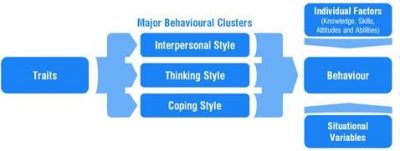Uncovering repeating patterns of behaviour is a key element of our culture fit recruitment and selection process. Identifying these behaviours helps us determine how a person will fit into an existing work culture, and how they react to certain pressures helps us understand how they might perform in their prospective role. However, the Coronavirus (COVID-19) has brought out some undesirable behaviours rarely ever seen in public. It got me thinking about context and what motivates us to behave in certain ways. Should we accept the pressure of the virus got to some people? Or are these behaviours something we should worry about when we are interviewing potential candidates?
Unprecedented pressure
Most of us would have been extremely surprised at what has occurred in our supermarkets and pharmacies across the country in recent weeks. Likewise, working from home has introduced new stresses to our lives we have not had before, bringing out behaviours that people possibly didn’t know existed. I myself have been guilty of this.
Behaving out of character
Behaviour is defined as “the way in which one acts or conducts oneself, especially towards others”. Interviewing techniques that bring out how someone might behave in future situations is a positive step in understanding what they will be like to work with and what behaviours to expect. However, sometimes things happen to cause people to behave differently or ‘out of character’. There is a distinctive difference in what we have seen people do under extreme and unprecedented stress – like a pandemic – and how they would usually behave and what we would expect to see in an interview or a new work environment. I recently spoke to some experts to understand what impacts these out of character events.
Stephen Kohl, Managing Director of GeneSys Australia says behaviour is influenced by three things:
- Underlying personality – the innate or baseline behaviour
- Environment – the demands of a situation, a person may be shy but can be outgoing with close friends, or feel they need a large pack of toilet paper to protect their family
- Experience – i.e. if someone is usually very trusting but find they need to be more suspicious when in a professional situation.
The model that Stephen uses to describe this is:

Tim Baker, author and thought leader in people engagement, describes behaviour in terms of the response to stimuli and references Viktor Frankl. Tim says if you can’t control the response to the stimuli, you can’t control the outcome. If we want a different outcome, we need to choose a different response. In the moment between the stimuli and the response there is a pause. Take a breath and think about the outcome you want. Ask yourself better questions to determine better outcomes. Situations occur at times when interpreting our environment and someone pushes our “hot buttons” and we react! This can occur when we are confined to live and work with others and when it is not something we normally do.
Di Harner, Mentor and Neuroscientist says every behaviour has a motivation and our motivation is to meet a need. Behaviour is a way we communicate that our needs are not being met. However, behaviour change is a process, not an event, which involves focus, repetition and positive feedback. Whenever we engage in a new behaviour, we need to create new pathways in our brain, and then strengthen those pathways by intentionally engaging in the new behaviour. This requires discipline and a desire to change the behaviour.
What motivated recent events?
These examples give us some insight into the behaviours seen at the beginning of the COVID-19 shutdown where we got unusual and out of character behaviour to satisfy a need. The desire to stockpile toilet paper and cleaning products was a response to the demands of the external environment. This caused behaviour not normally seen. This was how Stephen described the demands of a situation causing a potentially different behaviour and what Di described as a behaviour to satisfy a need.
In other cases, the lockdown and the unusually close living and working arrangements has seen actions or ‘stimuli’ from a family member provoke a response that was not the desired outcome. This is the piece that Tim described through the stimuli and response process which often leads to actions or outcomes that we may sometimes regret because someone has ‘pushed our hot buttons’. Have a think about the way you have responded negatively to an event in recent weeks and make a conscious decision about how you could positively react in the future.
Look out for repeating patterns, not the one offs
The COVID-19 Pandemic has inadvertently provided us with some good insight into why identifying repeating patterns of behaviour is still a valuable interview tool to determine suitability for the role. Outside of the one-off out of character behaviours we have seen during this pandemic, the regular or repeating pattern is likely to be maintained and is still a valid predictor of future behaviour. Obviously, the behaviours we have seen in recent times are not repeating, or we hope they are not repeating. They have been caused by external pressures and outcomes resulting from actions we would choose differently perhaps if given the opportunity.
I hope this gives you some insight into behaviours and where they come, and how you can change them if you wish. I leave you with a quote for Simon Sinek when it comes to leadership, “There are only two ways to influence human behaviour: you can manipulate it or you can inspire it”.
Happy Recruiting!
Photo by Charles Deluvio on Unsplash
